Mission
Vision
Equity
We recognize that eliminating inequities begins with each of us. It is our responsibility as a public school to do all we can to prevent student failure. To do this, we must each be willing to reflect on and address our own biases. We will strive to model equity and work to eliminate prejudice, bigotry and stereotypes by fostering learning communities devoid of judgment and prejudiced attitudes, thinking, and behaviors, where ALL students feel welcomed, accepted and valued. We will meet each student where they are (educationally and emotionally) and strive to address their needs and learning in a manner that acknowledges their community culture. We strive to provide equitable learning environments and opportunities that promote excellence for all people.
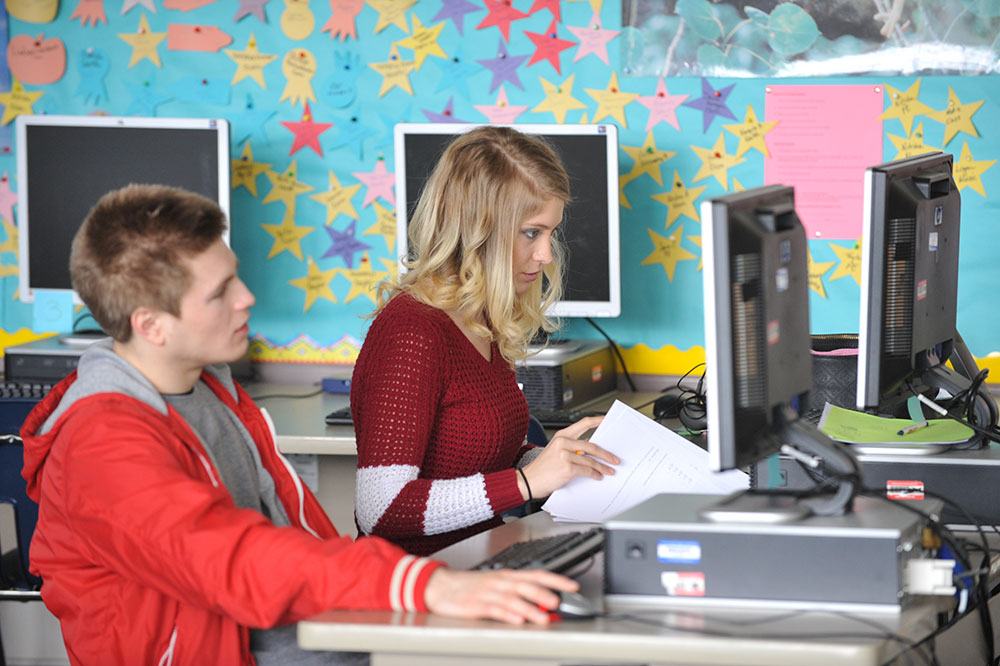
About our school
Heights Campus is home to nontraditional options in education for students in kindergarten through 12th grade. The educational programs at this school provide a personalized approach led by highly qualified teachers for students who prefer a unique classroom setting and a flexible and independent learning environment.
Our history
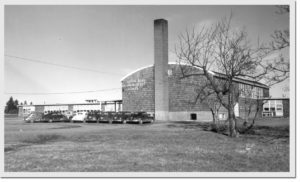
Historic photo of Lieser Elementary, circa 1944
Heights Campus (formerly Lieser Campus) is located on the property originally claimed in 1851 by Louis Lieser. During World War II, the federal government purchased most of the land. At the time, Louis Lieser’s great-grandson Miles Lieser still lived on a corner of the property.
Construction of a schoolhouse began in 1943 to accommodate the rapidly increasing wartime population of the McLoughlin Heights area, as well as the housing areas of Bagley Downs and Burton Homes, which were constructed for the influx of shipyard workers. The elementary school opened in 1944 and first-year enrollment exceeded 525 students.
The school was renovated in 1952 to include additional classrooms and a cafeteria.
The elementary school closed at the end of the school year in 1992 and the district moved early childhood education programs to the building.
Other notable dates
1968—Lieser School inaugurates the first outdoor school program, which became the model for district-wide programs.
Spring 1992—Lieser Elementary School closes.
Fall 1992—Early Childhood Education Center moves from Bagley Center and opens at former Lieser Elementary School. The expanded program serves 3- and 4-year-olds in eight morning and eight afternoon classes. The Clark County Head Start program and Vancouver Children’s Therapy Center also provide services there.
2004—Vancouver Home Connection, a classroom-based parent-partnership program serving students in kindergarten through 12th grade, opens with 113 students. The program begins at the Jim Parsley Community Center and in fall 2012 moves to the Lieser Campus.
2009—Virtual Learning Academy opens and grows to 200 full-time students during its first year of operation. The program begins at the Jim Parsley Community Center and in fall 2012 moves to the Lieser Campus.
2012—Vancouver Home Connection is a recipient of the Washington State Association for Supervision and Curriculum Development’s Supported Students Award. The award is intended to recognize educator(s) who contribute to providing a school where students have access to personalized learning and are supported by qualified, caring adults.
2015—Open Doors, a free GED preparation and testing program offered through ESD 112 that prepares students to take the GED test by attending flexible class sessions, begins at Lieser.
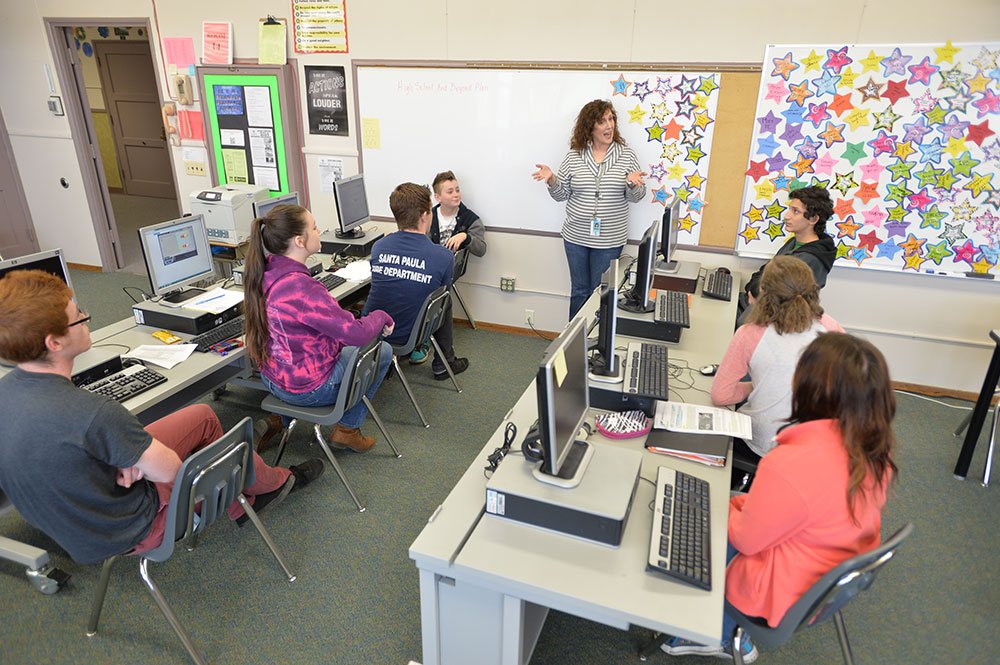
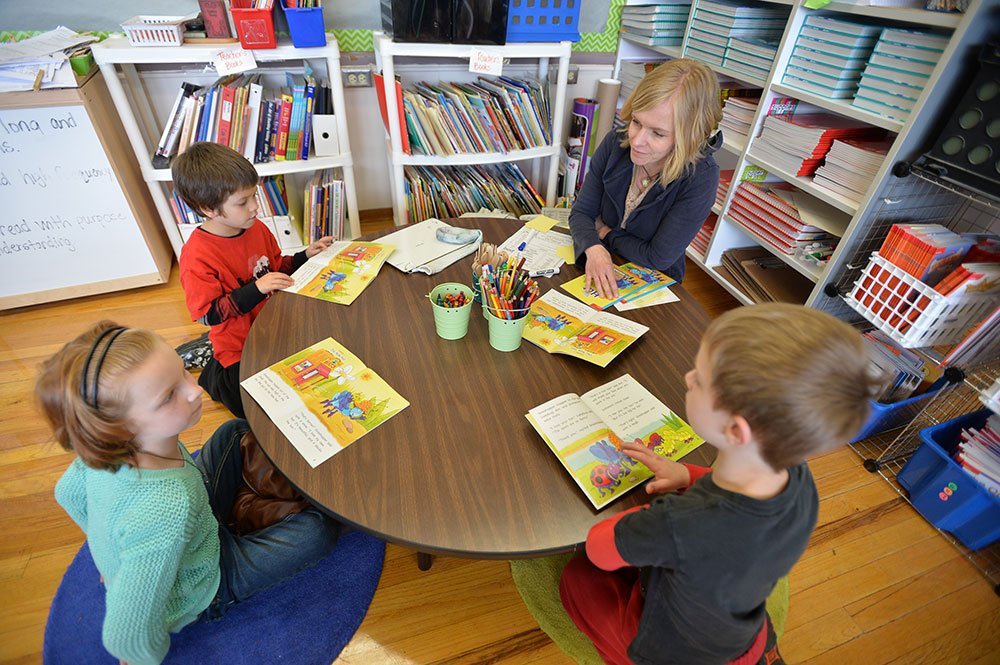
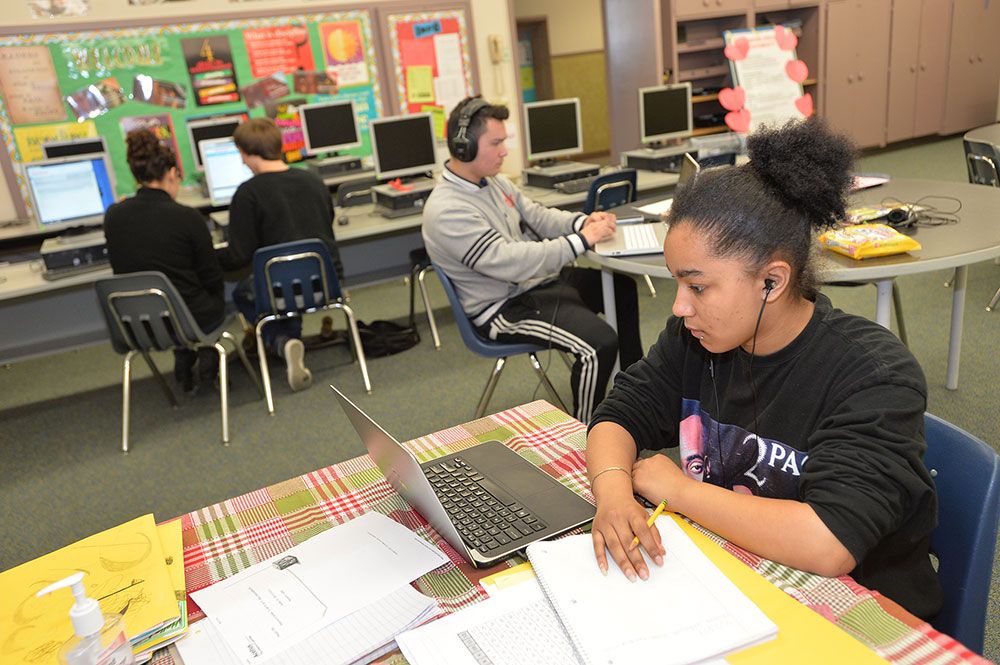
Alternative learning experience (ALE)
Heights Campus offers an alternative learning experience. ALEs are primarily defined by learning activities that occur in whole or in part outside of a regular classroom setting. They are intended to give public schools the flexibility to serve a diverse student population.
Frequently asked questions
ALE is a course or grade-level coursework for public school students in kindergarten through eighth grade. ALEs are primarily characterized by learning activities that occur away from the regular public school classroom setting. OSPI’s Digital Learning Department maintains a website that addresses the specific requirements and expectations of these learning activities. To receive state basic education funding for ALE, a school district must comply with the ALE funding requirements detailed in WAC 392-121-182.
Although an ALE may be similar to home-based instruction because it occurs away from school, it is not home-based instruction. ALEs are public school learning experiences that are planned, developed and supervised by certificated public school teachers. Home-based instruction is subject to specific state laws (RCW 28A.200 and RCW 28A.225.010), with planning and supervision falling under the authority of the parent who is encouraged to work with a certificated teacher in their resident district for planning and progress checks. Home-based students may enroll part-time in Vancouver classes and programs, including ALEs, but must complete an intent to homeschool form.
Because of the flexible and innovative nature of ALEs, it is difficult to categorize these learning options or programs into specific types. An ALE program may offer different types of ALE courses or coursework. The following is a brief overview of the types of ALE courses:
- Online: Online courses are courses where more than half of the content is online, more than half the instruction is delivered remotely and a certificated teacher has the primary responsibility for the student’s instructional interaction. Computer-based learning that occurs solely in a classroom setting under the direct supervision of a teacher is not ALE.
- Remote: An ALE course is remote when it is not an online course, and the student has less than 20 percent instructional contact time with the teacher during the total weekly time for the course.
- Site-based: An ALE course is site-based when it is not an online course, and the student has at least 20 percent instructional contact time with the teacher during the total weekly time in the course.
